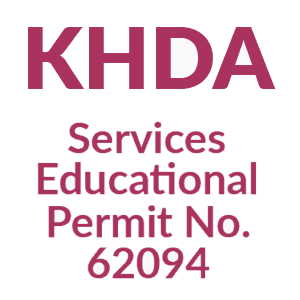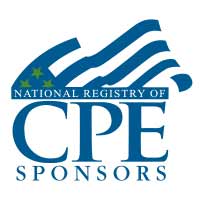Classroom Sessions:
| Date | Venue | Fees | |
|---|---|---|---|
| 15 - 19 Jul 2024 | Dubai - UAE | $5,950 | |
| 21 - 25 Oct 2024 | Dubai - UAE | $5,950 |
Online Sessions:
| 21 - 25 Oct 2024 | Online | $3,950 |
INTRODUCTION
In the past 50 years, Gas Chromatography has become an important analytical tool in virtually every phase of the petroleum industry, from exploration of crude oil and refining of finished products to research on new petrochemicals. Gas Chromatography (GC) is one of the most widely used techniques in modern analytical chemistry and in its basic form, is used to separate complex mixtures of different molecules based on their physical properties, such as polarity and boiling point. It is an ideal tool to analyze gas and liquid samples containing many hundreds or even thousands of different molecules, as in the case of crude oil or its products. The technique allows the analyst to identify both the types of molecular species present and their concentrations.
This comprehensive GLOMACS Oil & Gas Technology training seminar introduces the fundamental theory of Gas Chromatography along with the operation, maintenance and troubleshooting, from sample introduction through to data analysis. Instrument components are described and presented, along with their underlying theories as they apply to guiding best practices and effective method optimization and troubleshooting.
Because of the variety and complexity of sample types, petroleum chemists use a broad spectrum of gas chromatographic methods. You will learn about current best practices in terms of system configuration choices and initial method conditions.
This GLOMACS training seminar commences with an introduction to gas chromatography and will cover the following areas:
- Sample Preparation
- Sample Introduction
- Sample Separation
- Gas Supply and Handling
- Split / Split less and PTV inlets
- Capillary Volumns
- Detectors
- The Auto Sampler
- PC & Data System
- Creating Methods
- Integration and Reporting
- Quantitation and Calibrations
In addition, this GLOMACS training seminar also covers troubleshooting and maintenance of the following GC equipment:
- Sample Inlet & Auto Samplers
- Columns
- Detectors
- Data Analysis Systems
Objectives
This GLOMACS training seminar is designed to give the participants the competence to:
- Understand the Basic Theoretical Aspects of Gas Chromatography
- Communicate practical information, capabilities and limitations of Gas Chromatography
- Gain confidence on the:
- GC Analysis Technique
- GC Troubleshooting
- Analytical Results Evaluation
Training Methodology
This GLOMACS Gas Chromatography and Troubleshooting for the Oil & Gas Industry training seminar explains the techniques in a clear fashion and combines a mixture of classroom based presentations with many videos on GC hardware and software. Delegates will be encouraged to participate in this seminar through the use of workshops and group discussions, PowerPoint presentations as well as many short troubleshooting videos on the daily topics.
Organisational Impact
The delegates will benefit from the following:
- Introduction to procedures on sample handling and Gas Chromatography quality measurements
- A comprehensive overview to the measuring principles and application requirements of Gas Chromatography
- Introduction to the operation and troubleshooting requirements of Gas Chromatography
Personal Impact
Upon return to their workplace, delegates would have benefited from the following:
- Participants will have gained great understanding and confidence in being able to handle Gas Chromatography samples for quality / quantity measurements
- Participants introduced to the operation and troubleshooting requirements of Gas Chromatography
- Confidence in sample preparation through to sample introduction to analysis and quantification
- Participants introduced to the measuring principles and application requirements of Gas Chromatography
- Introduction to ISO17025 Accreditation requirements basics
WHO SHOULD ATTEND?
This GLOMACS Gas Chromatography and Troubleshooting for the Oil & Gas Industry training seminar is ideal for lab and quality professionals that do not have formal training or experience in gas chromatography or those that want to refresh their current knowledge of gas chromatography. It is also suitable for Environmental Quality Personnel, and fiscal quality inspectors.
DAY 1
Introduction to Chromatography
- Overview of Gas Chromatography
- Gas Chromatography Theory
- The Development Process
- Factors Controlling Retention
- Molecular Forces and Chromatographic Selectivity
- Stationary Phase Loading and GC Performance
- Chromatography Nomenclature
DAY 2
Injection Ports
- Gas Supply and Handling
- GC Inlets Selection Variation
- Capillary vs. Packed Column
- Direct Capillary
- Split / Split Less
- Programmed Temperature Vaporizer (PTV) Inlets
- Cool on Column
- The Role of Sample Introduction and Injection Ports in GC Operations
- Sample Introduction – Auto Samplers
DAY 3
Gas Chromatography (GC) Columns
- Column Selection
- Packed
- Capillary
- GC Column impact on Performance
- Peak Dispersion in a Chromatographic Column
- Column Maintenance and Troubleshooting
- GC Oven
- Isothermal vs. Temperature Programming
DAY 4
Gas Chromatography (GC) Detectors
- GC Detector Selection
- Detector Role in GC Operations
- How detectors can impact GC performance?
- Detector Maintenance and Troubleshooting
- Chromatography Applications
- Method Development
- Setup and GC Operation
- Preparation for Operation
DAY 5
Gas Chromatography (GC) Data Acquisition and Processing
- Sampling Techniques
- Data Acquisition and Processing Systems
- Calibration and GC Performance
- Gas Chromatography Troubleshooting
- Laboratory Information Management System (LIMS)
- ISO17025 Accreditation Basics
- Laboratory Management & Troubleshooting
- On successful completion of this training course, GLOMACS Certificate will be awarded to the delegates
- Continuing Professional Education credits (CPE) : In accordance with the standards of the National Registry of CPE Sponsor, one CPE credit is granted per 50 minutes of attendance
Endorsed Education Provider
GLOMACS is registered with the National Association of State Boards of Accountancy (NASBA) as a sponsor of continuing professional education on the National Registry of CPE Sponsors. State boards of accountancy have final authority on the acceptance of individual courses for CPE credit. Complaints regarding registered sponsors may be submitted to the National Registry of CPE Sponsors through its website: www.NASBARegistry.org
In Association With

PetroKnowledge
Our collaboration with Petroknowledge aims to provide the best training services and benefits for our valued clients



